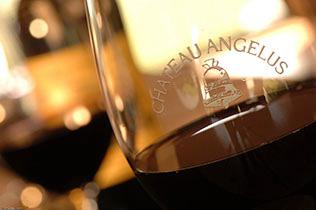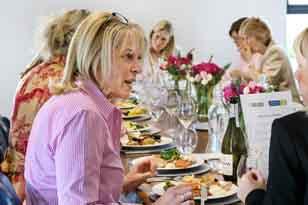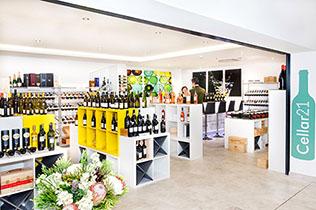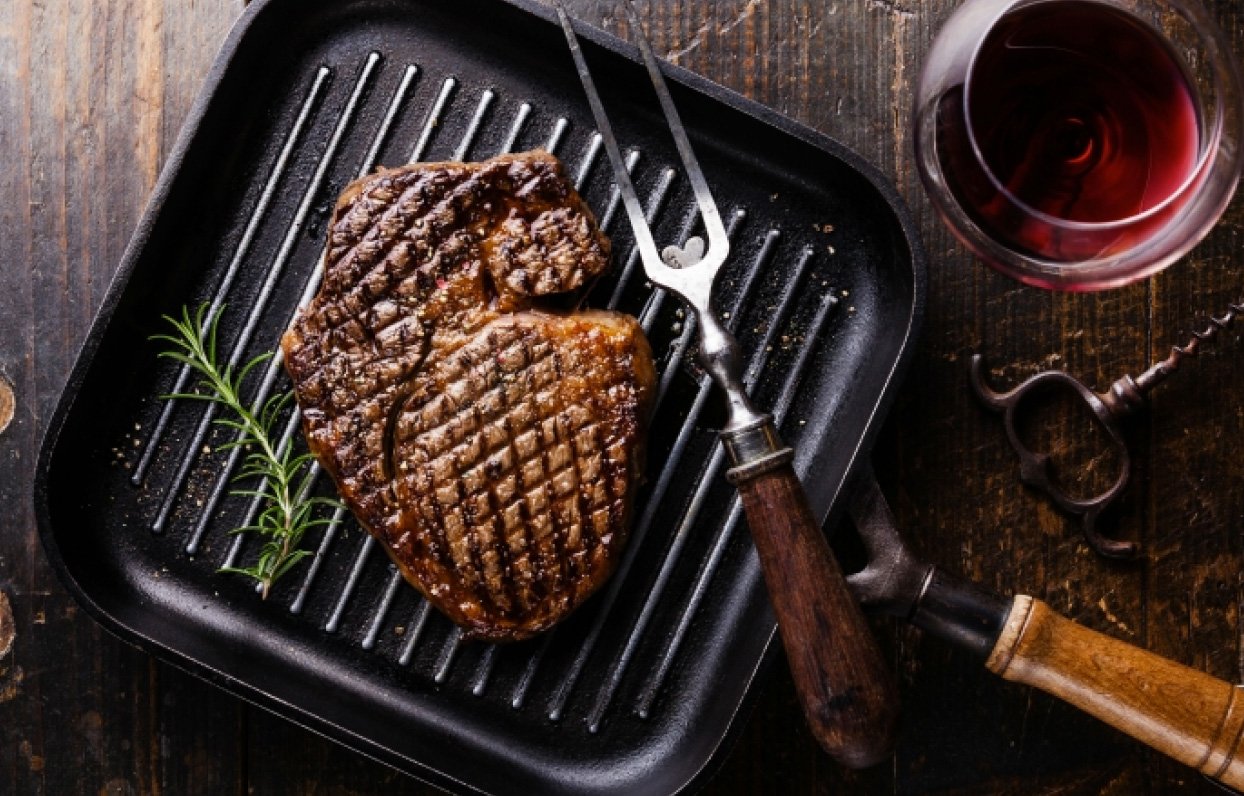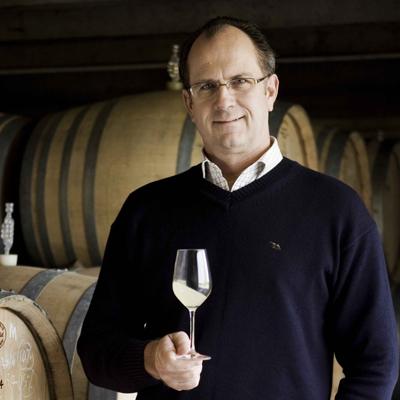

Michael Brajkovich MW
Head Winemaker & Master of Wine at Kumeu River
"I would love to make wine in Burgundy, for obvious reasons. It is the home of Chardonnay, Pinot Noir and Pinot Gris, and its wine continues to be the benchmark and inspiration that drives us to do better things with the same varieties in Kumeu."
Biography
After studying Oenology at Roseworthy College in South Australia, where he was Dux in 1981, Michael returned to the family vineyard and winery in Kumeu to take up responsibility for wine production. Since then he has travelled extensively through the world’s wine areas and had the opportunity to spend the 1983 vintage in France with the reputed house of Jean Pierre Moueix in Libourne, near Bordeaux.
Based on this experience a new range of wines was developed under the “Kumeu River” label, including a Sauvignon/Semillon blend and a Merlot Cabernet. It is the Chardonnay that has enjoyed the greatest critical acclaim and success in international markets, particularly in the United States. The “Wine Spectator” magazine has placed Kumeu River Chardonnay in its annual list of the top 100 wines on seven occasions. In 1996 the Kumeu River Chardonnay 1994 was ranked at Number 6. Exciting developments have also been taking place recently at Kumeu River with the varieties Pinot Noir, Pinot Gris, and Gewurztraminer, and with sparkling wine.
In 1989 Michael passed the Examination and became New Zealand’s first member of the prestigious Institute of Masters of Wine, London. This confers upon him the title of “Master of Wine”.
He has many years experience in judging at the Air New Zealand Wine Awards, and has also judged at the Australian National Capital Wine Show in Canberra, the Royal Hobart Wine Show in Tasmania, the Perth Royal Wine Show and the Royal Adelaide Wine Show. In 2012 Michael takes over the role of Chair of Judges at the Air New Zealand Wine Awards, and is Deputy Chair at the Royal Adelaide Wine Show.
Michael has been greatly involved with the New Zealand Screwcap Wine Seal Initiative, of which he was Chairman in 2001-2003. He currently sits on the Wine Science Board of Studies for the University of Auckland, and has been collaborating with the University in recent years on a study investigating indigenous yeast fermentations.
Q & A
A family run business is not all plain sailing as we know! What do you love about your business and how did your father whose footsteps you followed, influence your decision to make it a lifetime passion?
Dad was a very inspirational, larger-than-life character. He loved doing what he did in the business, and was a real people person, gregarious and welcoming. He also had great vision, and was determined that our wine business would make an impact. To that end he encouraged all of us children to get a good education and to pursue our own personal interests, and especially where those interests dovetailed into the family business. I always wanted to be a winemaker, and so my bent was towards the sciences and French, all of which would be immensely useful in the future. He was also very keen that one of us should go to a tertiary wine college such as Roseworthy in South Australia, and he was delighted that I was able to do that in 1979. What I love about the business is that we are taking very basic agricultural produce from the land and turning it into something quite magical that enhances peoples dining experiences and makes them happy. We get to visit amazing places all around the world where our wine is sold, and meet some lovely people. While it will never make us spectacularly rich in terms of monetary gain, it is a very fulfilling and rewarding life.
Describe for us Kumeu River vineyards and situation?
The Kumeu River vineyards, and those of our growers, are located in Kumeu, about 20km northwest of Auckland city. We have 30ha of our own vineyards, and we purchase from another 10ha of growers vineyards. The Tasman Sea on our west coast is only 20km away, and the Pacific Ocean side on the east coast is 30km distant, so our climate is particularly maritime.
Positioned high in the North Island of New Zealand, what are the challenges of winemaking in Auckland?
Even though we are a long way north in New Zealand, we are still not classified as warm climate. The proximity of oceans means that the climate is greatly moderated by the cooling influence of the water, and by extensive cloud cover. By any measure, we are classified as a cool climate viticultural area, and as such our concentration on early-ripening varieties such as Chardonnay, Pinot Noir and Pinot Gris is entirely understandable. Cloud cover and proximity to the oceans does result in higher rainfall and humidity. We get about 1200 mm annually, but at least it is winter-dominant precipitation, and we can quite frequently get a very useful dry spell in March and April just as the grapes are ripening.
We love your Chardonnay wines, what techniques do you use to interpret a Burgundian style?
We have adapted many traditional methods from the great domaines of Burgundy, but not completely in the vineyard. Our trellis design using the Lyre system is quite radical, but seems to be well suited to our situation. We hand harvest all the grapes, and do a severe triage in the vineyard to eliminate rotten or damaged fruit. We extract the juice gently using whole-bunch pressing, then settle using simple gravity and time. No yeast is added because we rely on wild yeast strains from the vineyard. Fermentation is in traditional oak barrels from Burgundy, and we encourage the malo-lactic fermentation to reduce the naturally high levels of acidity to something more palatable and textural. The wine ages for many months on the yeast lees, which protects the wine from oxidation, and adds mouthfeel and minerality to the palate. All of our wines are bottled using our own equipment at the Estate. This last step in the winemaking process is absolutely critical, and we have complete control over it ourselves.
You hold a Master of Wine, one of the first in NZ to hold this accolade. With your years of experience, apart from New Zealand, where else in the world would you like to make wine and why?
I was the first MW in New Zealand (1989). I would love to make wine in Burgundy, for obvious reasons. It is the home of Chardonnay, Pinot Noir and Pinot Gris, and its wine continues to be the benchmark and inspiration that drives us to do better things with the same varieties in Kumeu. Coonawarra, South Australia. I had the opportunity to work vintage there in 1981, and I hold its wine very dear. In my opinion it produces the best red wine in Australia, and has some of the best terroir for Cabernet Sauvignon in the world. It would be great to have a crack at making wine there again. Unfortunately the harvest time in Coonawarra clashes with our own, so this could never happen.
What do you think is the future for the NZ winemarket?
New Zealand will continue to produce outstanding cool climate wines from both red and white grape varieties. The first-rank classic varieties such as Chardonnay, Riesling, Gewurztraminer, Syrah, Cabernet Sauvignon and Pinot Noir will become more refined and differentiated, and will continue to produce the very best our country can offer. Sauvignon Blanc and others such as Pinot Gris will still be very important at the more commercial end of the market, and there will be a whole raft of newer varieties being trialled with varying degrees of success. Tempranillo, Albarino and Montepulciano are examples of these that are making an impact already.
When you are not enjoying your own wines, what do you enjoy drinking?
I like to taste a wide range of wines, and through wine show judging and other events have had the opportunity to taste very broadly across the world of wine. We also maintain a good collection of French, German, Italian, Spanish and Australian wines at the winery to keep our palates up to date with what is going on in the world of fine wines. Unfortunately the prices for the great classics of Bordeaux and Burgundy are now largely unreachable for us, so we have been enjoying exploring other regions, as well as the lesser-known appellations within Bordeaux and Burgundy. Spain in particular is a current area of interest, especially the white wines from the North-west made from Albarino and Verdejo. In my spare time at home I also like to drink red wines from Chianti, and white wines from Alsace and the Marches, and I am a great fan of Manzanilla.

